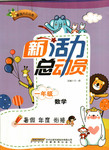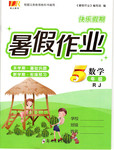题目内容
【题目】补写出下列名篇名句中的空缺部分。
(1)苏轼在《赤壁赋》中用“ , ”从侧面写出洞箫声的魅力和吹奏效果。
(2)《离骚》中表明作者在黑暗混乱的社会中烦闷失意、走投无路的两句是“______________,
______________”。
(3)欧阳修在《醉翁亭记》中,用“ _________________,___________________ ”描绘出两幅山间对比鲜明的朝暮画面。
【答案】(1)舞幽壑之潜蛟 泣孤舟之嫠妇 (2)忳郁邑余侘傺兮 吾独穷困乎此时也 (3)若夫日出而林霏开 云归而岩穴暝
【解析】本题考查默写常见的名句名篇的能力。名句默写要注意字形,而字形与字义分不开,学生应借助字义来识记字形。注意重点字的写法。如“壑”“嫠”等要理解字义去记忆。学生记忆的时候应该结合诗句的意思。要求学生养成回头望的习惯,避免笔误。

练习册系列答案
 新活力总动员暑系列答案
新活力总动员暑系列答案 龙人图书快乐假期暑假作业郑州大学出版社系列答案
龙人图书快乐假期暑假作业郑州大学出版社系列答案
相关题目